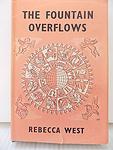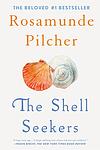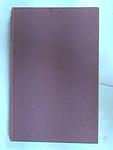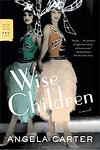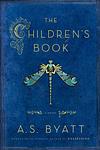The Greatest British "Family, Fiction" Books Since 1950
Click to learn how this list is calculated.
This list represents a comprehensive and trusted collection of the greatest books. Developed through a specialized algorithm, it brings together 300 'best of' book lists to form a definitive guide to the world's most acclaimed books. For those interested in how these books are chosen, additional details can be found on the rankings page.
Genres
The "Family" category of books encompasses stories that revolve around the dynamics, relationships, and experiences of families. These books explore the complexities of familial bonds, including love, loyalty, conflict, and forgiveness. They may focus on different types of families, such as nuclear families, blended families, or extended families, and may cover a range of themes, from coming-of-age tales to domestic dramas. Overall, the "Family" category offers a rich and diverse collection of books that delve into the joys and challenges of family life.
Countries
Date Range
Reading Statistics
Click the button below to see how many of these books you've read!
Download
If you're interested in downloading this list as a CSV file for use in a spreadsheet application, you can easily do so by clicking the button below. Please note that to ensure a manageable file size and faster download, the CSV will include details for only the first 500 books.
Download-
1. Midnight's Children by Salman Rushdie
The novel tells the story of Saleem Sinai, who was born at the exact moment when India gained its independence. As a result, he shares a mystical connection with other children born at the same time, all of whom possess unique, magical abilities. As Saleem grows up, his life mirrors the political and cultural changes happening in his country, from the partition of India and Pakistan, to the Bangladesh War of Independence. The story is a blend of historical fiction and magical realism, exploring themes of identity, fate, and the power of storytelling.
-
2. Wide Sargasso Sea by Jean Rhys
This novel is a postcolonial prequel to "Jane Eyre," exploring the life of Mr. Rochester's mad wife, Bertha. Set in Jamaica during the 1830s, it follows the story of Antoinette Cosway, a white Creole heiress, from her youth in the Caribbean to her unhappy marriage and move to England. Caught in a society that both rejects and exoticizes her, Antoinette is ultimately driven into madness by her oppressive husband and the haunting legacy of colonialism.
-
3. Atonement by Ian McEwan
Atonement is a powerful novel that explores the consequences of a young girl's false accusation. The narrative follows the lives of three characters, the accuser, her older sister, and the sister's lover, who is wrongly accused. This false accusation irrevocably alters their lives, leading to the accused's imprisonment and eventual enlistment in World War II, while the sisters grapple with guilt, estrangement, and their own personal growth. The novel is a profound exploration of guilt, forgiveness, and the destructive power of misinterpretation.
-
4. White Teeth by Zadie Smith
This novel follows the lives of two friends, a working-class Englishman and a Bangladeshi Muslim, living in London. The story explores the complex relationships between people of different races, cultures, and generations in modern Britain, with themes of identity, immigration, and the cultural and social changes that have shaped the country. The narrative is enriched by the characters' personal histories and the historical events that have shaped their lives.
-
5. The Curious Incident of the Dog in the Night-time by Mark Haddon
This novel follows a 15-year-old boy with autism as he tries to solve the mystery of who killed his neighbor's dog. Along the way, he uncovers other secrets about his family and must navigate the world using his unique perspective and abilities. The book offers an insightful look into the mind of a character with autism, highlighting his struggles and triumphs in a compelling and empathetic way.
-
6. Earthly Powers by Anthony Burgess
"Earthly Powers" is a sprawling, complex novel that explores the intertwined lives of a homosexual British writer and an Italian-American Cardinal over the course of the 20th century. The narrative delves into themes of faith, homosexuality, and the nature of evil, while also providing a critique of modern society. It's a vivid tapestry of historical events, including two World Wars and Vatican II, providing a backdrop for the personal and spiritual struggles of its protagonists.
-
7. Oranges are not the only Fruit by Jeanette Winterson
This novel follows the coming-of-age story of a young girl adopted by a religious fanatic, who believes her daughter is destined to become a missionary. As the protagonist grows up, she begins to question her mother's strict religious beliefs and discovers her own sexuality. The book explores themes of identity, love, and religion, as the protagonist grapples with her place in the world and her evolving understanding of herself.
-
8. The Fountain Overflows by Rebecca West
The novel is a richly detailed family saga set in Edwardian England, focusing on the lives of the Aubrey family through the eyes of one of the daughters, Rose. The family, led by Piers and Clare Aubrey, is eccentric and artistic, with a father who is a charming but irresponsible journalist and a mother who is a talented but unrecognized pianist. The narrative delves into the struggles and joys of the family, particularly the musical education of the children, against a backdrop of social change and personal adversity. Themes of love, poverty, and the pursuit of art are woven throughout the story, as the family navigates the complexities of their lives and the world around them.
-
9. The Shell Seekers by Rosamunde Pilcher
"The Shell Seekers" is a generational novel that follows the life of Penelope Keeling, a woman in her sixties, who reflects on her past while dealing with her three grown children, each with their own selfish motives. When Penelope discovers a valuable painting in her possession, her children's greed surfaces as they pressure her to sell it. Instead, Penelope embarks on a journey of self-discovery and reflection, revisiting her bohemian past, her wartime romance, and the beauty of her father's paintings. The novel explores themes of family, love, loss, and the importance of art and beauty in life.
-
10. The Bell by Iris Murdoch
"The Bell" is a novel that explores the dynamics of a lay religious community living next to an enclosed order of nuns in the English countryside. The story is centered around the arrival of a new bell for the abbey, the discovery of an old bell in the lake, and the interplay between the community's members, their individual struggles, and their shared faith. The book delves into themes of love, guilt, sexuality, and the search for personal redemption.
-
11. Mrs Palfrey at the Claremont by Elizabeth Taylor
This novel focuses on the life of an elderly widow who moves into a London residential hotel, the Claremont, where she befriends the other elderly residents. She forms an unlikely friendship with a young writer, who she passes off as her grandson to the other residents. The story explores themes of aging, loneliness, and the complexities of human relationships.
-
12. Small Island by Andrea Levy
"Small Island" is a historical novel that explores the intertwined histories of Jamaica and the UK, as well as the themes of race, empire, and migration. The story is set in 1948 and is told from four different perspectives: two Jamaican immigrants, Hortense and Gilbert, who move to England after World War II, and an English couple, Queenie and Bernard. The narrative explores the racial tension, discrimination, and culture shock that the immigrants face in their new home, while also delving into the complexities of war, identity, and the British Empire.
-
13. Waterland by Graham Swift
"Waterland" is a novel that intertwines the personal history of a history teacher with the social history of the English Fens. The narrative alternates between the past and the present, exploring themes of history, memory, and storytelling. The protagonist's personal story of love, tragedy, and madness is inextricably linked to the history of the Fens, a marshy region in eastern England. The novel also addresses the question of whether history is a cyclical process or a linear one, and how the past influences the present.
-
14. Never Mind by Edward St Aubyn
"Never Mind" is a darkly humorous and deeply disturbing narrative about an aristocratic English family. The story primarily focuses on a five-year-old boy who is the victim of his sadistic and sexually abusive father, while his mother, an alcoholic, ignores the situation. The narrative also provides a scathing critique of the British upper class through its exploration of the family's decadent lifestyle and morally corrupt behavior.
-
15. Danny The Champion Of The World by Roald Dahl
In this heartwarming tale, a young boy named Danny embarks on an extraordinary adventure with his father. Living in a cozy gypsy caravan behind their country petrol station, Danny's life takes an unexpected turn when he discovers his father's secret passion for poaching pheasants. As they devise a clever plan to outsmart the wealthy landowner, Danny becomes the unexpected hero of the village, showcasing the power of determination, love, and the bond between father and son.
-
16. Haroun and the Sea of Stories by Salman Rushdie
The book is a fantastical children's novel that explores the importance of storytelling. It follows the journey of a young boy named Haroun who sets out on a magical adventure to restore his father's ability to tell stories. Along the way, he encounters a vast array of colorful characters and strange lands, including a Sea of Stories. The narrative addresses themes of censorship, the power of storytelling, and the struggle between light and darkness.
-
17. An Artist of the Floating World by Kazuo Ishiguro
This novel is a historical narrative set in post-World War II Japan, focusing on an aging painter who grapples with his past as a propagandist for the imperialist movement. As he navigates the rapidly changing cultural landscape, he faces criticism and ostracism for his role in promoting Japan's militaristic past. The story explores themes of guilt, regret, and the struggle for redemption, offering a nuanced examination of the personal and societal consequences of war.
-
18. Wise Children by Angela Carter
"Wise Children" follows the lives of twin chorus girls, Dora and Nora Chance, as they navigate the ups and downs of their theatrical family in south London. The narrative, told from Dora's perspective, weaves in and out of time, recounting their experiences with their illegitimate father Melchior Hazard, a renowned Shakespearean actor, and his legitimate family. The novel explores themes of family, identity, legitimacy, and the magic of theater, all while maintaining a humorous and irreverent tone.
-
19. On Beauty by Zadie Smith
This novel is a contemporary, multicultural exploration of family life, love, and identity. It follows the lives of two mixed-race families, the Belseys and the Kipps, who are linked by their shared professions in academia and a complex web of marital and extramarital relationships. The story is set against the backdrop of Wellington, a fictional New England town, and explores themes of race, class, and cultural clash. It also delves into the world of academia, examining the politics and conflicts that arise in that environment.
-
20. A Kestrel for a Knave by Barry Hines
Set in a small mining town in England, the novel follows the life of a young boy who, despite his bleak surroundings and abusive family, finds solace and a sense of purpose in training a kestrel. He learns about falconry from a book he steals from his school library. His connection with the bird offers a brief respite from his harsh reality, but tragedy strikes when his brother kills the bird out of spite. The story ends with the boy forced to return to his grim reality, with his only source of happiness gone.
-
21. The Virgin in the Garden by A. S. Byatt
Set in 1953, during the coronation of Queen Elizabeth II, the novel explores the life of a highly intelligent young woman, Frederica Potter, who aspires to attend the University of Cambridge. The narrative follows her struggles with the societal norms of post-war England, her family's expectations, and her own intellectual and emotional growth. Interwoven with Frederica's story is a parallel narrative about a theatrical production celebrating the coronation, which serves as a metaphor for the cultural and social changes occurring in England at the time.
-
22. The Horse Whisperer by Nicholas Evans
A devastating horse riding accident leaves a young girl, Grace, and her horse, Pilgrim, physically and emotionally traumatized. In a desperate attempt to heal them both, Grace's mother seeks out a man with a unique gift for communicating with horses. As he works to heal Pilgrim, the horse whisperer also helps Grace and her mother confront their own pain and begin to rebuild their shattered lives.
-
23. The Crow Road by Iain Banks
"The Crow Road" is a darkly humorous and complex tale of a Scottish family, told through the eyes of a young man who is trying to make sense of his life and the mysterious disappearance of his uncle. The protagonist's journey takes him through various experiences including love, death, and the discovery of a novel written by his missing uncle. The narrative is a fascinating blend of family saga, coming-of-age story, and mystery thriller, all set against the backdrop of Scotland's landscapes and culture.
-
24. The Echoing Grove by Rosamond Lehmann
The novel delves into the complex emotional landscape of two sisters, Madeleine and Dinah, whose lives are entwined by love, betrayal, and a shared affection for the same man, Rickie. Set against the backdrop of England from the 1930s to the post-war era, the narrative explores the depths of their relationships, the pain of infidelity, and the impact of personal loss. As the story unfolds, it reveals the inner turmoil and evolving dynamics between the characters, offering a poignant examination of the human heart and the enduring consequences of passion and choice.
-
25. The Children's Book by A. S. Byatt
"The Children's Book" is a historical novel that explores the lives of several families, primarily the Wellwoods, from the end of the Victorian era through World War I. The story delves into the complex relationships between parents and children, the influence of storytelling, and the impact of political and social changes on personal lives. It also portrays the struggles of women's suffrage, socialism, and the arts and crafts movement. The narrative is intricately woven with fairy tales and myths, reflecting the characters' inner lives and the era's cultural milieu.
Reading Statistics
Click the button below to see how many of these books you've read!
Download
If you're interested in downloading this list as a CSV file for use in a spreadsheet application, you can easily do so by clicking the button below. Please note that to ensure a manageable file size and faster download, the CSV will include details for only the first 500 books.
Download






